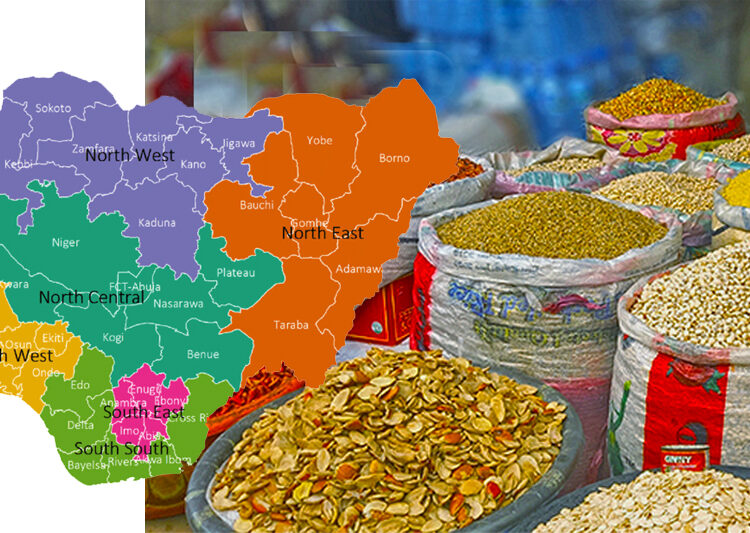For Nigeria, a steep increase in prices of foodstuff occasioned by an alarming food inflation which currently stands at 40.8 percent suggests evidently that there is the proverbial fire on the mountain.
The nation is facing an imminent danger of hunger which no doubt poses existential threat to the citizenry because there is absolutely no substitute for food which ranks highest in man’s order of needs.
For instance, data from Save the Children, a non governmental organisation, indicate that about 32 million people including 15.6 million children in Nigeria will face hunger this year. The figure indicates a staggering 25 per cent increase from what it was in the preceding year.
The statistics become more alarming and worrisome if juxtaposed against the fact that the number of hungry people in Nigeria and some parts of Africa is estimated to reach 49.5 million people between June and August 2024. In 2023, the World Food Programme (WFP) disclosed that Nigeria has the second highest number of people without food security in the world.
From these preceding information, we are compelled ask why despite efforts by governments, food insecurity has continued to worsen in Nigeria and other parts of Africa. Why would Nigeria, in spite of its potential, including the availability of vast arable land suitable for cultivation of different food and cash crops, be facing the threat of hunger?
There are a plethora of reasons for this including the fact that the seemingly intractable insecurity, with bandits making farms inaccessible for farmers, have contributed significantly to the shortage of food supply which is at the heart of the current price increase and looming hunger.
While combating insecurity is central to addressing this threat of imminent hunger, government, at all levels, and even the private sector players must move some steps further by increasing investment in sustainable agriculture.
In our considered opinion, the government can hasten the nation’s drive towards attaining food security by leveraging on technology, providing basic infrastructure, soft loans and farm inputs to farmers and other critical players in the small and medium enterprises sector of the economy.
Perhaps this is why the Jigawa state’s initiative, which strives to ensure sustainable food security, economic empowerment, and improved livelihoods in the state, deserves special mention.
Only recently, the state flagged off an agricultural support programme primarily targeting civil servants.
The programme strives to support the efforts of civil servants who constitute a significant portion of the state’s population, to feed their families by providing them with additional sources of income.
As part of the programme, the state began the disbursement of N3.3 billion agricultural loan to civil servants covering cost of inputs including fertilizer, chemicals and pesticides for the cultivation of millet, sorghum, and sesame.
Jigawa state governor, Umar Namadi, said the programme is part of an ambitious agricultural transformation initiative aimed at achieving food security and economic diversification for the state and the nation in general.
Tellingly, the programme which seeks to provide workers with an additional source of income thereby reducing their over-reliance on salaries, aims to encourage workers to engage in mass farming to boost food security.
It is a given that aside from ensuring enhanced financial stability for workers, the programme will also lead to increased agricultural productivity in the state.
We observe that the strategy strives to get more people to participate in agricultural production and also strives to ensure more lands in the state are cultivated.
In our considered opinion, if dutifully implemented, this programme will, soon, help to assuage the suffering occasioned by rising food prices which has eroded workers’ purchasing power.
Good enough, the government put in place measures to forestall default with one of the key criteria for participation being that a beneficiary must have a low debt burden not exceeding one-third of gross salary.
Plausible as this programme sounds, the state government must do all it takes to guard against abuse because from experience, packages of this nature are always subjected to abuse by both beneficiaries who often see it as largesse and senior civil servants driving the process who often help themselves with the funds.
Therefore, we urge the state government to put in place all the necessary measures that would guard against abuse and ensure the loan package is revolving so that all those who genuinely need it can have a chance of benefitting from the facility.





